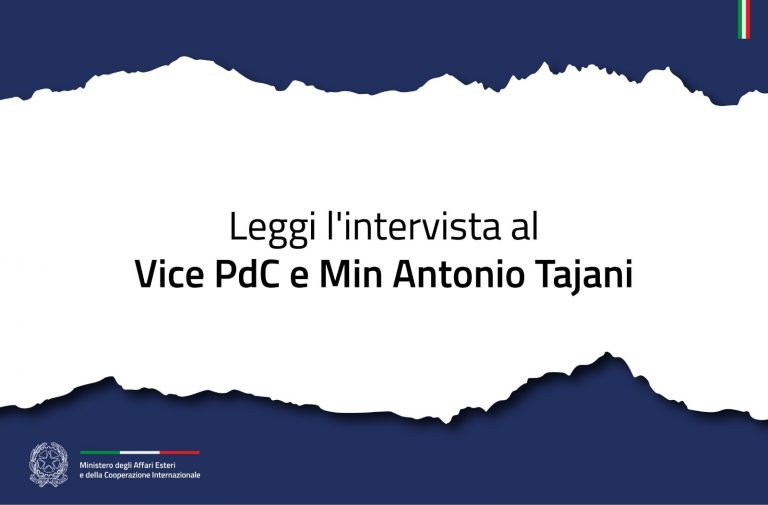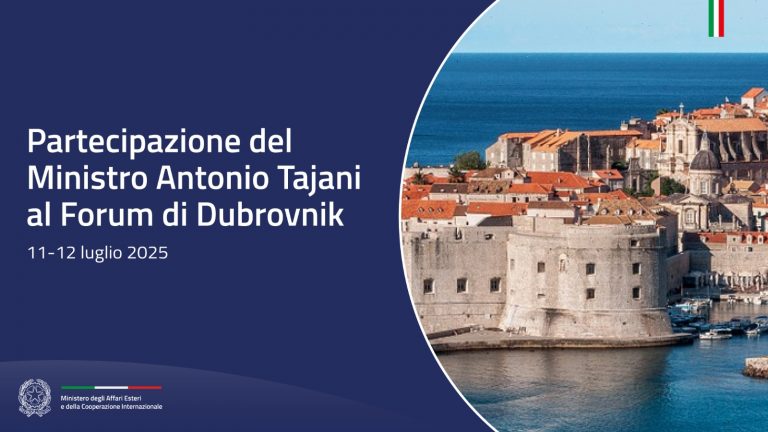CHAMBER OF DEPUTIES
Urgent Government briefing on developments in the situation in Turkey
(Speech by the Minister for Foreign Affairs)
EMMA BONINO, Minister for Foreign Affairs. Madame Speaker, honourable deputies and colleagues, first of all I wish to reassure you that the Foreign Ministry has been following events in Istanbul, Ankara and Izmir since the outset. In addition to their political implications, we have also been closely following the presence of Italian citizens. Our Embassy in Ankara, and our consulates in Istanbul and Izmir, have been in constant touch with the Crisis Unit at the Farnesina to provide up-to-date information and safeguard Italian citizens living in or travelling through Turkey.
First, the facts. The initial demonstration in Istanbul on 31 May, against the redevelopment project decided by the Government for Gezi Park, was limited in terms of numbers participating and took the form of a peaceful expression of citizens’ views. The police reaction – a disproportionate reaction, as the Turkish authorities themselves admitted – provided an opportunity for other groups to express their unease with the Government and certain of its policies. The protests then spread from Ankara to a number of other cities, in a scenario of growing opposition and criticism of the political power represented by the AKP. Moreover, the Kemalist opposition joined in with the demonstrations, rather than leading them. In truth, these demonstrations arose essentially – and I will comment on this again later – as spontaneous, limited protests by various elements of society.
In Istanbul, the epicentre of the protest was in Taksim Square and Istiklal, the main commercial thoroughfare. In Ankara too, the clashes took place in a central, commercial district. More limited initiatives took place in Izmir and in Antalya, Mugla, Samsun, Sivas. In a situation that is still very antagonistic and uncertain, the official toll of the clashes is, for now, hundreds of injured and four deaths: three demonstrators and one member of the forces of law and order.
The President of the Republic, Gül, offered some hope of restoring calm; he called on the Government and forces of law and order to respect the demonstrators’ right to express their ideas, and to show the necessary sensitivity to the opinions of all. Deputy Premier Arinch apologised for the excessive use of force by the police against the demonstrators in Gezi Park. At the same time, the Home Affairs Minister, Guler, opened investigations into local officials’ and police officers’ responsibility for the events.
On his return from his official visit to North Africa, Prime Minister Erdogan said that Arinch’s declarations had been necessary, but the Government in Ankara then oscillated between opening a dialogue and closing its doors to the protesters. The risk is one of increasing polarisation. After his initial, partly conciliatory, declarations, the Prime Minister appears not to have ruled out a test of strength, a scenario that naturally involves serious political, as well as humanitarian, risks.
Meanwhile, on 7 June the Conference on European Union-Turkey relations, organised by the Minister for European Affairs, took place as planned in Istanbul, with the participation of the European Commissioner for Enlargement and Neighbourhood policy, Füle. The Commissioner invited the Government to adopt a more open stance. He pointed out the importance of aiming at peaceful co-existence between different styles and concepts of life. He underscored that European countries and those who aspire to join the Union have a duty to comply in full with the highest democratic principles. He underscored that democracy is a demanding discipline, which requires daily commitment. Füle also commented that strengthening democracy and the European accession process are two sides of the same coin.
I can only agree, in full, with this declaration and I had occasion to express that publicly right from the earliest days of the demonstrations.
In his reply on that occasion Prime Minister Erdogan continued to draw distinctions between the protestors and called for an end to the demonstrations. In this case too, his messages swung between moderation and closure to dialogue. It was no coincidence that Commissioner Füle went on to define the Conference as a wasted opportunity.
The exact scope of the demonstrations is still not entirely clear. Their effect as a catalyst on different elements of society, united by a common dissatisfaction with some of the Government’s policies, should not be underestimated. Italy is favourable to the opening of a dialogue that might lead to agreed solutions in the interests of the country, and is working to that end. At stake is the relationship between political power and society: perhaps the first serious test to the soundness of Turkey’s democracy and its European accession process.
A “graduation exam” for the Turkish government, which must show that it safeguards the opinions of all sections of society, is taking place in the country’s squares and streets. An exam that some people thought Turkey had already passed, with its economic dynamism. But much more is needed: the ability to unite the different “spirits” of the country in a social covenant that respects pluralism, diversity and, in short, democracy.
At the same time, honourable colleagues, I feel it would be useful to avoid the error of looking at Turkey through a lens blurred by misleading models. It is true that social networks were the most effective means of communication and the main instrument used by the demonstrators to organise these initiatives. And I have heard people talk of a “Turkish Spring”. Well, forgive me, but that is not the case. The Turks are not Arabs, so let us try not to draw overly superficial parallels. Taksim is not Tahrir.
Indeed, these demonstrations, if we observe them more closely, are more similar to those we have seen – often on a large scale, in our capital cities. In some way, they remind me more of “Occupy Wall Street”, possibly with a more marked presence of calls and demands for freedoms.
You know how close this country, Turkey, is to my heart and how closely I have followed and encouraged its development over the years. This Government is the expression of free elections, certainly, which on three successive occasions have given a clear majority to the Prime Minister’s party. But as President Gül said with such authority, elections alone are not enough. To understand the deep causes the time has come for Europe too to examine its conscience, with honesty.
In the recent past the Turkish model has been praised, in some cases more than it deserved, for its economic successes and because of the hope – which we still harbour – that it would be able to combine Islam and democracy. This model was supported with the opening of negotiations for the country’s accession to the European Union, and was recognised at the time of the constitutional referendum in 2010, which reduced the power of the army. But I have to say that some European countries, and Europe in general, then abandoned Turkey, by failing to open certain negotiation chapters.
I believe that that is a short-sighted vision, a backwards step in Turkey’s European process, a step taken just at its time of greatest need of support for the consolidation of democratic standards. This behaviour was entirely inconsistent, if we consider that the adoption of certain of the blocked negotiation chapters – for example on freedom of expression and the fundamental rights – would have met the demands of some many of the Turks who have now taken to the country’s squares and streets.
The democratic “gaps”, especially as regards freedom of expression and of the press, were clearly illustrated in the European Commission’s progress report. There is also a more widespread malaise, caused, for example, by the pressures suffered by the press, with all too many journalists and intellectuals imprisoned. And also by Turkish women, exposed to the Islamisation processes taking place in society.
That malaise has also been rendered more acute by certain decisions taken by the Government, for example the approval of the law on the consumption of alcohol, which many saw as a restriction of their personal freedom. And it has been made more acute by the repercussions of the crisis in Syria, with such large-scale flows of refugees into Turkish territory. So many factors have played a part and, I repeat, brought the people to the streets with their various demands.
The demonstrations have thus far seemed to lack any overall direction or clear leadership. Participants are largely young, ordinary citizens, the expression of a spirit in society that identifies with a more open concept of the state, a spirit in society that also wants a less paternalistic style of government. The military seem to be absent from the scene, and the opposition parties are holding back, maybe because they cannot offer a valid, credible alternative. Essentially, it seems to us that these are the voices of people who do not identify with certain choices made by the government or with the way the AKP has developed recently.
I immediately, and publicly, expressed the keen apprehension I felt over these events. The disproportionate use of force by the police, and the arrest of tens of lawyers, can never be an acceptable response. History teaches us that lesson, as, indeed, does the history of Italy. The right to demonstrate peacefully is a vital pillar of democracy, as are pluralism and tolerance. There can be no alternative to the road of dialogue and debate. Dialogue is, in reality, the instrument of the strong. Recourse to force or violence is often an expression of weakness.
I repeat, as the President of the Turkish Republic, Abdullah Gül, has said, that the democratic element cannot take the form solely of free elections, which are just one of the fundamental elements of the rule of law. And Italy expects all sides to make every effort to bring an end to the violence and promote a climate of peaceful debate by the various positions.
In truth, Turkey must decide if it wants to become a mature democracy. The Italian Government continues to believe, firmly, in Turkey’s European prospects. And I am convinced that the EU accession process, if pursued without hesitation and indecision, can have a beneficial effect on the country’s political dynamics. And so, if we want to support Turkey’s democratisation process, we must continue to encourage it, on its pathway to accession, to respect the principles of pluralism and democracy. Our choice is clear: we want a Turkey that is fully democratic in Europe, and to achieve this goal we need far-sighted leadership – including on the part of the European Union.
Lastly, it is important to underscore that Turkey represents, for us and for Italy, a strategic partner, in view of its geopolitical position and its economic vitality. In this last decade Italian companies operating in Turkey have achieved excellent results, and now number 1000. In short, Turkey is a country we know well.
I would like to underscore just how essential domestic stability is to the economic growth of the country, and to the development of its international economic relations. Mature democracy, the exercise of that democracy and economic success are related elements of a growth and human development strategy. As a historic friend of Turkey and its people, as Foreign Minister of one of Turkey’s principal partners in Europe, I feel I can address this message to the Government in Ankara today.






